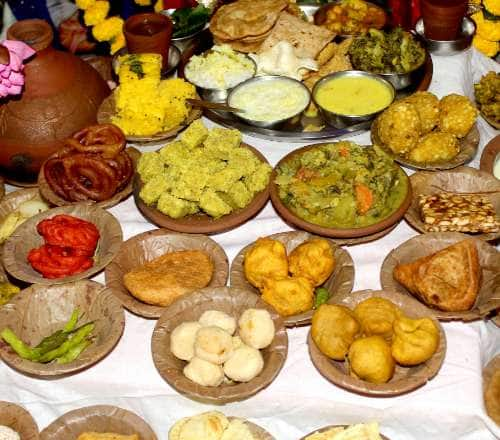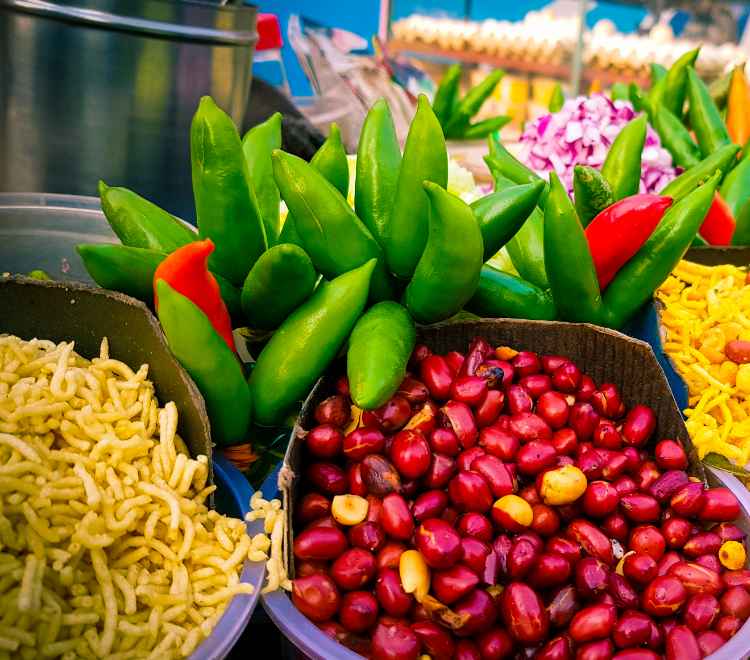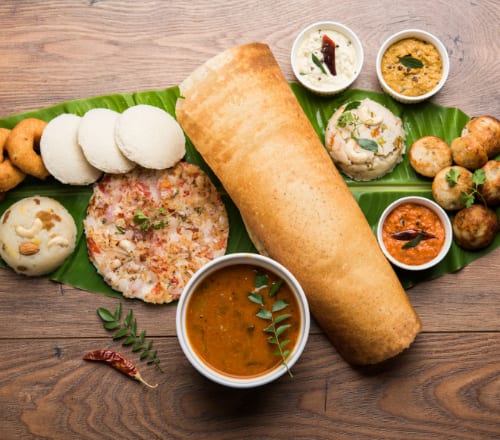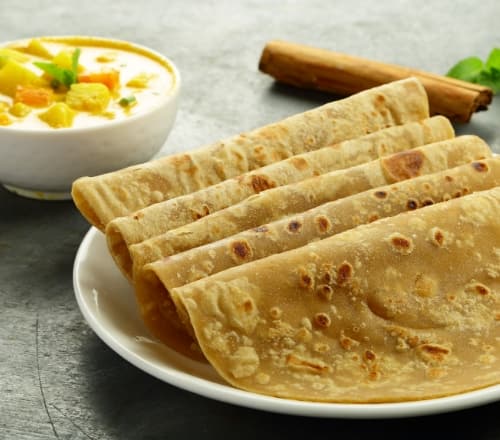Stay logged in to proceed with bookings, orders and offers.
On changing the terminal, you will loose items in your cart. Are you sure you want to change your terminal?
A look into the lives of Mumbai's dabbawalas who have sustained the test of time.
During my recent trip to Mumbai, I couldn't help but notice an army of men wearing white Gandhi caps, weaving through the city traffic on bicycles and trains. Later, I learned that these men play a vital role in helping people relish home-cooked food in the "City of Dreams".
Dabbawalas are synonymous with Mumbai, like the local trains, the Gateway of India, and the sea link. It's fascinating to note that the dabbawalas make sure that no one goes without a hot meal in a city that is always moving.
What moved me to write this piece was how the dabbawalas have stayed relevant as a reliable delivery system even today – a testament to their hard work.
In the city of Mumbai, time waits for no one. The hustle-bustle of the city pushes the days forward and it can be challenging to keep pace with the setting sun at Marine Drive. Irrespective of the hubbub of the city, it is hard to miss these men clad in white uniforms. They are always on the move, rushing ahead to reach their destination in time. From morning to evening, their cycles never stop.
Read More
Read Less
Dabbawalas have embraced technology and have since gone digital. You can now log in to their website and register for their services. You can also email or call them to avail of their services. I was thrilled to watch their TED talks and was inspired by their insights on management. Hats off to their hard work and perseverance!
The first person to avail of this incredible service was a Parsi banker in 1890. He was craving a home-cooked meal and arranged for the delivery of his lunch to the first dabbawala. He probably never anticipated the results of his actions.
However, it was Mahadeo Havaji Bachche who took this concept and put a formal system in place. He started a lunch delivery service in the then Bombay and hired around 100 delivery men. It was also during this time that migrants flocked to the city in search of work.
Most of these migrants started work early in the morning. Due to the absence of restaurants and eateries at the time, they often went hungry in the afternoons. Any available food wasn't always appealing to these people who came from diverse backgrounds. Hence, home-cooked meals in the afternoon looked like an ideal solution to this problem. This gave the dabbawala system a huge boost.
The dabbawala system is a superb example of organising and planning. All dabbawalas are part of a union and follow a system like a relay race. Dabbas are passed from one place to another, from cycles to trains and local dabbawalas. The system is complex but almost flawless. The error rates are almost nill!
Each dabbawala is assigned a specific route, and every lunchbox is carefully labelled with the name and address of its intended recipient. They collect lunchboxes from across the city, then load them onto trains headed for the city centre. Here they are sorted and delivered to the correct addresses. As the day comes to an end, the dabbawalas return the tiffins to their respective houses.
Dabbawalas have been an essential part of Mumbai's food culture for more than a century. Their story is one of hard work, dedication, and resilience.
The dabbawalas have a unique coding system that helps them deliver food efficiently. Over the years, the coding system has changed. Back in the day, it was a colour-coded system. Today, it has evolved into a simpler alphanumeric system.
Dabbawalas face multiple challenges daily to make ends meet. From heavy rains to the humid summers of Mumbai, dabbawalas plough through maddening traffic and overcrowding locals. They also have to deal with competition from other meal-delivery companies.
As a result, dabbawalas are forced to work harder to stay ahead of the competition. They have to maintain their high standards of service as well as innovate new ways to better themselves.
However, what is helping them sustain their success is their experience spanning a century. They know the city in and out. The strong network of dabbawalas that runs across the city is hard to beat. Today, there are more than 5,000 dabbawalas in the city, serving over 2,00,000 customers daily!
Dabbawalas have become an integral part of everyday life in the city. They have even made an appearance on the big screen, featuring stories that capture the essence of Mumbai. The film Lunchbox is a love story that blossoms through the dabbawala system. The film portrays how Sajan (late Irrfan Khan) and Ila (Nimrat Kaur) develop an unexpected bond through these very dabbas.
The fame of the dabbawalas extends beyond India. They have also been featured in the Guinness Book of World Records. A dabbawala named Prakash Baly Bachche set the record for carrying 3 crates of tiffins on his head! It may not sound like much, but it is nothing short of a feat!
In 2003, King Charles III – who was Prince Charles then – met the dabbawalas during a visit to Mumbai. Despite their busy schedule, they managed to spend 20 minutes with him without any interruption in their delivery services.
When Prince Charles got married in 2005, the dabbawalas were not forgotten. Two office-bearers of the Mumbai dabbawala organization, Raghunath Medge and Sopan Mare, received invitations to his wedding and went to London to attend the ceremony. When the Queen passed on in 2022, the dabbawalas expressed their condolences to the royal family.
The dabbawala system has even been studied at the Harvard Business School. Richard Branson, the founder of the Virgin Group, travelled with the dabbawalas and delivered a huge lunchbox to his employees in Mumbai.
It is fascinating to see that the dabbawala system exists even today. They have sustained the test of time, technology, and the advent of globalisation. They have adapted to modern technology by introducing online ordering, delivery, and tracking services.
Interestingly, women have also become an integral part of the food delivery process. Today, the dabbawalas have changed their delivery model, and now they deliver meals cooked by their wives in addition to regular deliveries.
However, it is unfortunate that the women who work tirelessly behind the scenes are often ignored and find no mention in the literature. Women play a vital role in not only preparing these meals but also managing households. Hence, it's only fair that they receive the recognition they deserve.
During the COVID-19 pandemic when the whole world went into lockdown, the dabbawalas suffered a huge challenge. The dabbawalas who had survived the passage of time and delivered food at all times couldn't deal with the restrictions posed by the pandemic.
Many of them went back to their villages. Some of them took up odd jobs to make ends meet. It was the first time they had been unemployed in years. Many of them became farmers, watchmen, labourers, and gardeners to feed their families.
Many eventually partnered with local restaurants and hotels to deliver food across the city. They faced multiple challenges due to the lack of exposure to technology. They were only familiar with the coding system and most of them were semi-literate or illiterate. However, it is not easy to beat the spirit of the dabbawalas.





The Adani One expressly disclaims all liability, direct and indirect, in respect to actions taken or not taken based on any or all the contents of this Blog. The Blog is an opinion of the contributor based on the collation of data from various sources and is provided only for information purpose. Adani One does not canvass, advertise, solicit, invite or induct for any product, merchandise, information, brand or any other materials mentioned in the Blog, nor does it obtain any monetary benefit from the same. Reader is advised to read and apply his/her intellect and discretion in this regard. Any Intellectual Property mentioned in this blog belongs to the rightful owner. We do not intent to claim any interest over the same.